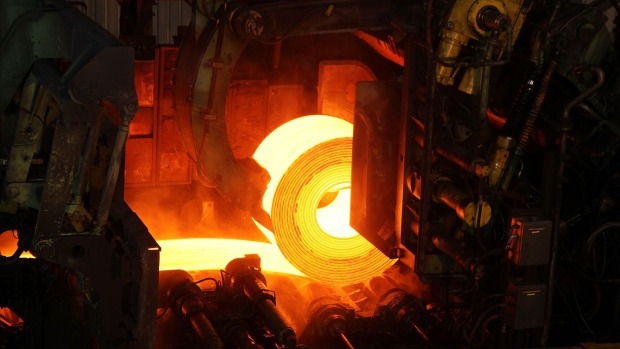Apr 23, 2024
Brazil Joins Protectionist Wave in Face of Cheap Steel Imports
, Bloomberg News

(Bloomberg) -- Brazil is stepping up protections for its steelmakers amid an influx of cheap imports led by China, by imposing an import quota system on 11 types of alloy products.
Shipments exceeding quotas will be taxed 25%, the Development and Industry Ministry said in a statement Tuesday. This compares with current tariffs of about 11%.
The higher tariff will be charged on products whose imports increased more than 30% from the 2020-2022 average. It’s expected to take effect in about 30 days and be in force for a year.
Read More: China’s Surging Steel Exports Are Inflaming Global Trade Tension
An uptick of cheap imports due to a slowdown in China’s economy is pressuring steel producers across Latin America. Chile just issued a decree to impose temporary anti-dumping tariffs on Chinese steel used in the country’s mining industry.
Steel-producing nations like Brazil, Chile and Colombia face the dilemma of protecting their mills and safeguarding jobs versus the risk of souring relations with top trading partner China and pushing up prices for local buyers of steel products.
Brazilian steelmakers expect 6 million metric tons of imported steel to flood the country this year, up 20% from last year’s record high. Companies including Gerdau, Usiminas and CSN have been seeking protection from what they call predatory imports from China.
“The damage is deep,” Usiminas Chief Executive Office Marcelo Chara told analysts Tuesday. “The world is adopting this kind of mechanism to avoid a flood of completely unfair trade.”
Read More: China Condemns US’s Overcapacity Claim Just Before Blinken Visit
In November, industry association Aco Brasil warned that government inertia would lead to new plant stoppages, unemployment and even shortages. China accounted for 53.6% of Brazilian steel imports from January to March, followed by the European Union with 9.6%.
Brazil’s Vice-President Geraldo Alckmin avoided questions on possible impacts on trade relations with China, where most of the steel imported by the country comes from.
Brazil has taken an “extremely careful” measure to preserve jobs and encourage new investment in the sector, which is currently operating at a high level of idleness, he said.
The government says it’s committed to combating unfair trade, and has initiated investigations when requested by the private sector, as well as applying anti-dumping measures in cases where the investigation finds illegal practices.
©2024 Bloomberg L.P.


